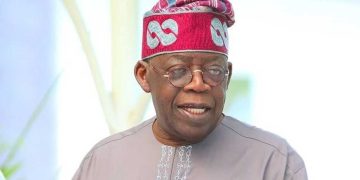President Bola Tinubu recently praised the positive outcomes that followed his decision to exempt the Federal Capital Territory (FCT) from the Treasury Single Account (TSA) system. This move has sparked renewed debate about the actual value of the TSA policy in facilitating efficient public service delivery to Nigerians.
During a public address, President Tinubu highlighted that freeing the FCT from TSA restrictions has accelerated development and enhanced citizen participation in governance. “I remember when the FCT minister approached me requesting exemption from the TSA to accomplish more,” Tinubu recalled. “After reviewing his plans, I approved the request, and the results were immediate.”
The President pointed to tangible improvements, including the development of rural areas, completion of previously abandoned projects such as the Vice President’s official residence, the rehabilitation of healthcare centers, and upgrades to school facilities. Tinubu commended FCT Minister Nyesom Wike for demonstrating how removing bureaucratic obstacles could improve governance outcomes.
The TSA policy, initially piloted in 2012 and fully implemented in 2016, was designed to create a unified accounting structure for government ministries, departments, and agencies to enhance transparency and reduce corruption in public fund management. However, the policy has faced mounting criticism over the years.
The Academic Staff Union of Universities (ASUU) has been particularly vocal, demonstrating how the TSA negatively impacted university operations, leading to salary irregularities and administrative complications. Research has also suggested that the TSA has fallen short of its expected benefits in increasing tax revenue.
Critics and supporters alike have identified a common concern: the lack of sincere implementation by government officials. This criticism appears justified given several high-profile corruption cases involving officials operating under the TSA system:
- Former Secretary to the Government of the Federation under President Buhari, Babachir Lawal, faced prosecution for an alleged N544 million “grass-cutting contract” scandal before being acquitted in 2022.
- The EFCC recently questioned former Minister of Humanitarian Affairs, Umar Farouq, regarding allegations of corruption involving N37.1 billion in social intervention funds.
- President Tinubu suspended Minister Beta Edu over unexplained expenditures of N585 million.
- Perhaps most damaging to the TSA’s reputation is the ongoing investigation of former Accountant General of the Federation, Ahmed Idris, for allegedly misappropriating N109 billion. This case, ongoing since May 2022, has been adjourned to May 2025.
These cases demonstrate that while the TSA aimed to improve financial management and reduce corruption, it has failed to prevent significant financial misconduct by public officials.
The President’s exemption of the FCT from the TSA appears to validate concerns that the policy may be impeding rather than enhancing service delivery. The visible progress in the FCT following its exemption suggests that the TSA’s bureaucratic requirements may be unnecessarily burdensome without delivering adequate anti-corruption benefits.
This publication supports President Tinubu’s decision regarding the FCT exemption and recommends that the administration consider extending similar flexibility to other government agencies and ministries. The focus should shift from rigid adherence to the TSA framework toward ensuring efficient service delivery under strict adherence to due process and accountability measures that actually work.

Madukwe B. Nwabuisi is an accomplished journalist renown for his fearless reporting style and extensive expertise in the field. He is an investigative journalist, who has established himself as a kamikaze reporter.


















